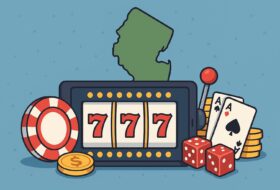
The US is currently home to two markets that serve as gambling deserts. No, not the Las Vegas “gambling is allowed here” desert, but the type that completely prohibits gambling in any format. Hawaii and Utah are the country’s two biggest holdouts when it comes to gambling, whether it’s online or at a casino. A few bills in Hawaii’s state legislature may change that in the near future.
The Aloha State has a few lawmakers pushing to bring legal gambling to the state. Here’s a round-up of the bills:
- Senate Bill 561: if passed, would form the Hawaii Lottery and Gaming Corporation
- House Bill 363: companion bill to SB561
- Senate Bill 853: would create the Hawaii state lottery
- House Bill 359: authorize construction of a single integrated commercial casino resort
- Senate Bill 1321: companion bill to HB359
First Up: Hawaii’s Possible Lottery
Each bill has some key stipulations that would mold Hawaii’s gambling landscape into a strictly regulated market. This isn’t much of a surprise; the jump from no gambling whatsoever to a lottery and casino is a lot for a state to take on.
SB561 and HB 363 would establish the “Hawaii lottery and gaming corporation for the purpose of conducting gambling in Hawaii.” All proceeds from the lottery would go to improvements for Hawaii’s public schools.
SB853 would create an actual state lottery, allowing players to participate in Mega Millions and PowerBall drawings. The bill includes no other games at this point, meaning Hawaii lottery players would be limited to just those two draw games.
Casino On The Horizon?
Finally, HB 359 and SB1321 would allow for the construction of one integrated casino resort. This portion of Hawaii’s legislative move toward legal gambling is particularly interesting for two reasons. First, the state is already a massive tourist destination, and a casino could serve as an added lure for travelers. Second, the fact that only one casino will be allowed creates an ideal market for the Hawaiian government to accept bids on the project. That could bring extra revenue to the state and give the project winner a rather large foothold in a brand new market.





